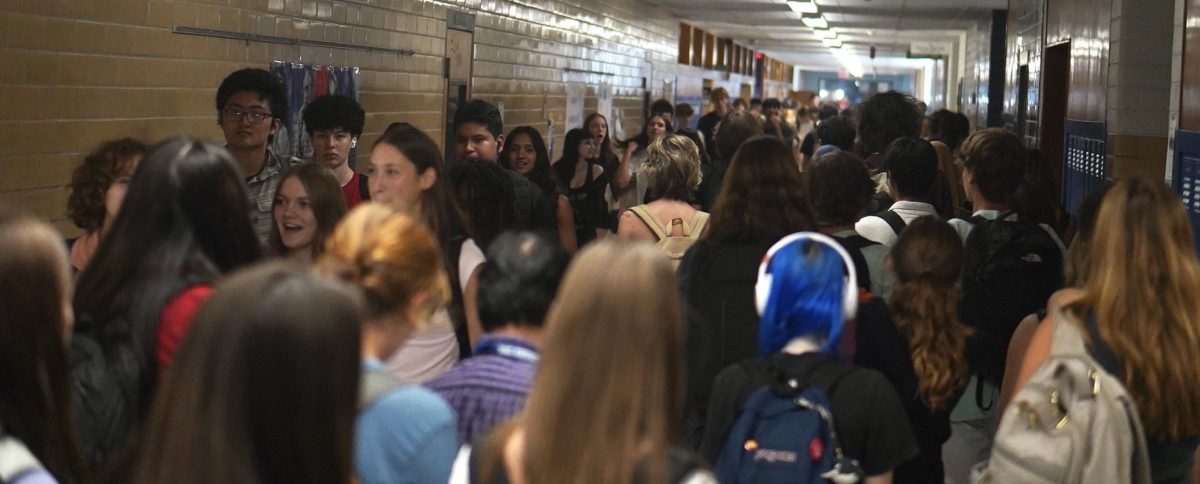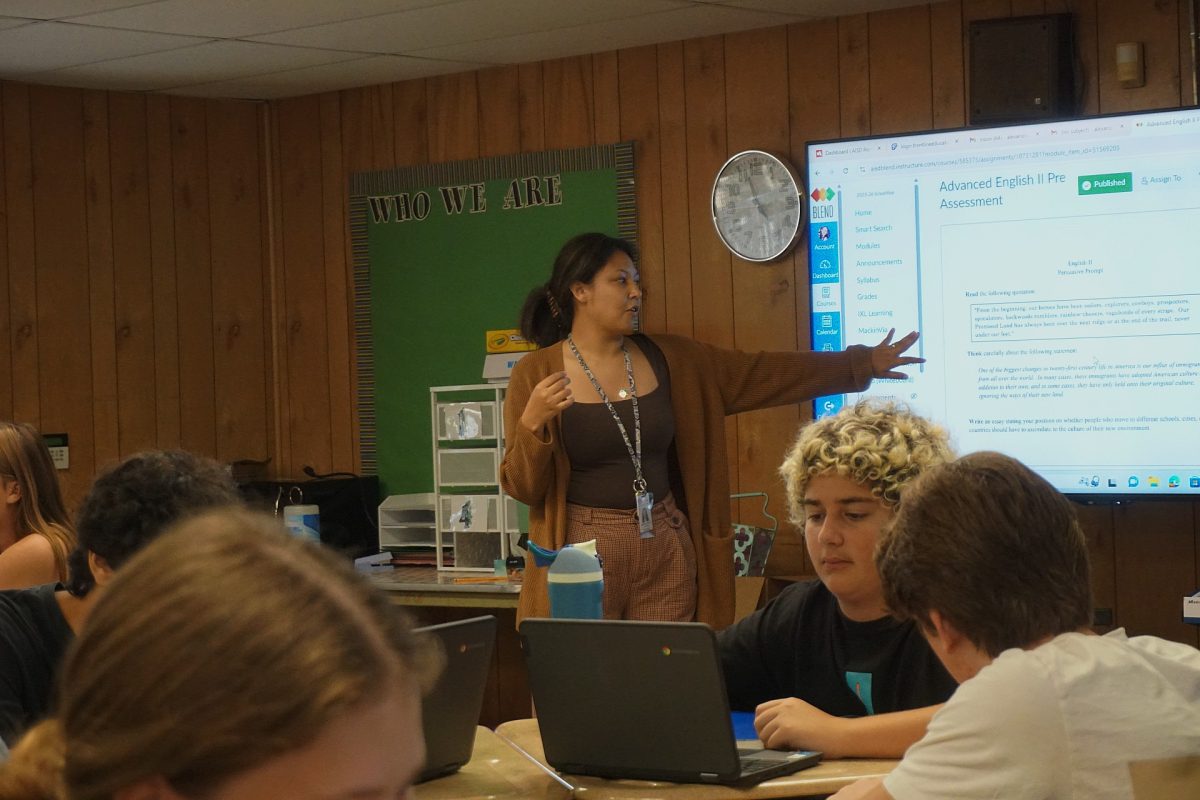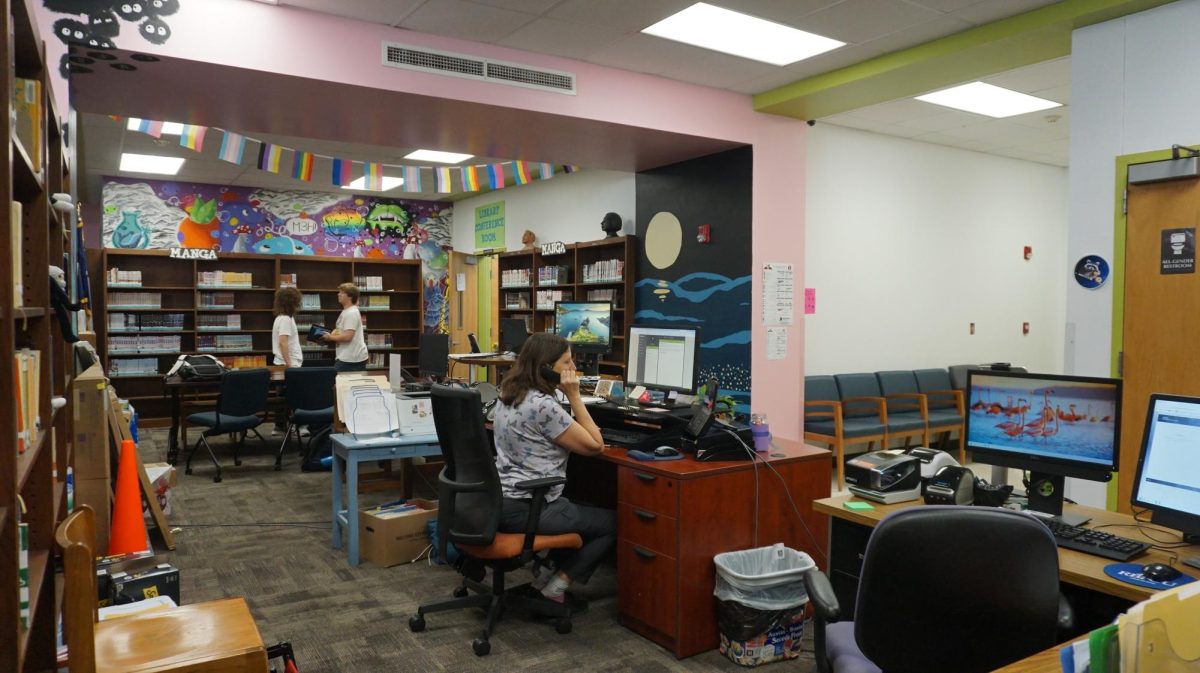THE ISSUE:
Getting increasingly larger, Austin ISD’s budget deficit has increased to $110 million for the ongoing 2024-2025 school year. A proposed solution to combat this ongoing problem is an increase in property tax, approximately a $34 increase per month per household. The Board of Trustees voted Aug. 15, 8-1 in favor of placing the tax on the Nov. 5 ballot, so the tax will now be left to voters to decide if it will be enacted or not. Currently, there is no set time period that the tax will be effective; it will continue until AISD decides to roll it back, should state funding allotment increase.
The school board decided to put the Voter-Approval Tax Rate Election, or VATRE, on the November ballot to ask voters to approve a property tax rate increase to benefit the school district and provide extra funding. One of the main reasons for this tax rate election is to increase the amount of money the district will receive. The amount the district receives per student has not increased since 2019, staying steady at $6,160. This rate has not been able to keep up with inflation and other costs that have arisen, which has contributed significantly to the debt AISD is in. If the tax is elected into place, the district will raise an additional $550 per student.
AISD trustee Kathryn Whitley Chu, whose district includes McCallum, said this plan was a last resort effort and but absolutely necessary due to the insurmountable deficit the district faces.
“It is a big ask of our communities,” said Whitley Chu, a longtime teacher and mother of two. “We wanted to ask the state, who is obligated by the constitution to fund their schools, to do their job, and the fact is, that they didn’t.”
HOW IT AFFECTS MCCALLUM:
In the past decade, voters have approved two AISD bonds, one in 2017 and a second in 2022. The bonds are designed to provide money for modernization for several campuses and provide a 7% raise to teaching staff, counselors, and librarians. Bond packages are allotted for specific improvements and cannot be redistributed to other areas with insufficient funds, whereas the new tax increase, if approved, will provide money for an overall budget to go wherever the district best sees fit. In 2017, McCallum received approximately $8.5 million in calculated costs for numerous projects, most visibly the new dance studio; in the 2022 bond package, McCallum received $66.5 million for a partial campus modernization.
Whitley Chu explained that the tax—versus doing another bond cycle—would amass $41 million for the district annually, ensuring the district continues to get that little piece of extra funding.
“This [tax] will give us $41 million each year so we don’t have to keep coming back to the voters,” she said. “We voted on two budgets, so that if in November this passes, teachers will get a raise in December, which voters have been really excited to hear.”
The tax, if approved by voters, will stay in effect until the Board of Trustees decides to change it, should AISD receive more state funding.
“We can’t give up on the state doing their job just because Austinites are doing theirs,” Whitley Chu said.
AISD worked with Education Austin, the local teachers’ union, to figure out pay with this new amount the tax will generate. Seventeen million of the $41 million will go to compensation for school-based staff. The amount each teacher will be given will depend on years of experience and duration.
“A particular group where we haven’t kept up has been our veteran teachers,” Whitley Chu said. “But the raises are so small, and so this money is going to really make those years of experience count.”
Principal Andy Baxa said he is in support of whatever raises additional funding for the school. He noted that the district has been working hard to keep schools running without feeling the budget crunch too much.
“AISD has done a good job of trying to insulate the campuses from feeling the budget crunch as much,” he said. “We are feeling it in some of our ancillaries, but as far as teachers in the classroom, the districts did a good job of trying to buffer it.”
Going into effect directly in December, teachers will see a pay raise if the tax is elected in November, which Baxa finds impressive.
“I thought it was cool that they thought forward enough to say if this does pass, we’re going to pay off staff retroactively for this fall semester in the middle of December.”
While McCallum and neighboring schools haven’t felt a big impact of this deficit so far, Baxa acknowledged that some areas are struggling.
“Downtown, they have been taking a hit right now and have to restructure a bunch of their stuff,” he said. “I’ve known some friends that have lost jobs down there and had to look for different positions.”
Even though a large portion of the money raised is subject to recapture, Baxa still feels hopeful.
“The VATRE should have a positive impact because it should bring in additional resources and funds back into the district,” he said. “Sure, we are going to have to cut off a share for recapture, but it still brings in additional funds.”
Ivan Gonzales, an advanced physics and astronomy teacher at McCallum, believes that everyone is affected by the budget, despite McCallum not suffering as much as other areas. For Gonzales, the biggest effect has been the lack of resources and materials. Many teachers have spent personal funds due to the lack of departmental funding.
“Especially in science, we always want to do activities and hands-on stuff,” he said. “When you don’t have the money to buy those things, I know I and some other teachers have spent our own money for our classrooms.”
Oftentimes, to help with the stress of the school year, parents help out teachers with purchasing supplies or other materials they may need.
“Parents can help, but only so much,” Gonzales said. “I do love the fact that parents kind of fill the gaps a little bit with help, but we can’t expect them to do everything.”
Gonzales is not a property owner, so he will not be paying this tax for the near future. Although he won’t be paying it, he is conflicted about it, recognizing the benefits for the district but understanding the burden on homeowners.
“Obviously, we need money for facilities and stuff; it just sucks we have to put it on homeowners,” he said. “The redistribution law is the reason we do not have the money that we need. It does suck that it goes on the homeowners, but this is the only way to get the money we need.”
On Nov. 5, the VATRE will take place, voters will determined the fate of the tax rate and the teacher raise that its increase might fund.











